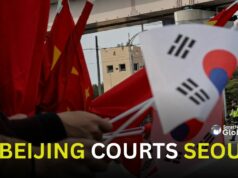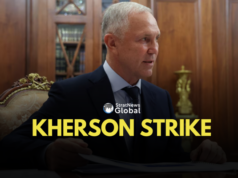In this excerpt of a longer interview, Global Compass and Dr Deepika Saraswat, a distinguished expert on Iranian politics, and Associate Fellow at the West Asia Center of IDSA, examine Iran and its President Pezeshkian’s Reformist Agenda Amidst its complex political Landscape.
The political dynamics following the election of Iran’s new President Masoud Pezeshkian is bound to be intriguing. Positioned as a reformist, Pezeshkian’s approval by the Guardian Council and subsequent election has sparked widespread interest both within Iran and internationally. Dr. Saraswat highlights that the snap election witnessed a notable shift in voter behavior, with a significant increase in turnout during the second round, interpreted as a rejection of radical hardliner policies.
Dr. Saraswat discusses the multifaceted role of reformists in Iran’s political arena, emphasizing their ability to mobilize moderate and gray voters. The conversation explores the potential impact of Pezeshkian’s presidency on Iran’s political future, considering the constraints imposed by theocratic institutions and the supreme leader’s overarching influence.
The interview also addresses the critical issue of women’s rights in Iran. Despite high literacy rates among women, their participation in the workforce remains low, and recent events, such as the arrest and death of Mahsa Amini for not wearing a hijab, highlight ongoing challenges. Dr. Saraswat underscores the importance of viewing Iranian women as active agents of change within the socio-political framework, rather than passive recipients of external support.
While acknowledging the reformists’ past limitations, Dr. Saraswat expresses cautious optimism about their potential to foster public debate and incremental change on contentious issues like mandatory hijab laws. This nuanced perspective provides a comprehensive understanding of the complex interplay between reformist aspirations and the entrenched conservative elements within Iran’s governance structure.
Do subscribe to StratNewsGlobal for the full interview later this week…. don’t forget to like and share this video as well!
Neelanjana Banerjee is a Broadcast Media Specialist with 23 years of cross-media experience in designing and producing content for television, radio and online media.
Having held a wide range of roles in various aspects of electronic media, she is a multifaceted professional and has an in-depth and hands on experience in broadcast
content, programming, media production, channel / product launch, TV and
radio skills training and online content.
Neelanjana was awarded the Chevening Gurukul fellowship in Leadership & Excellence from King's College, London in 2016.




